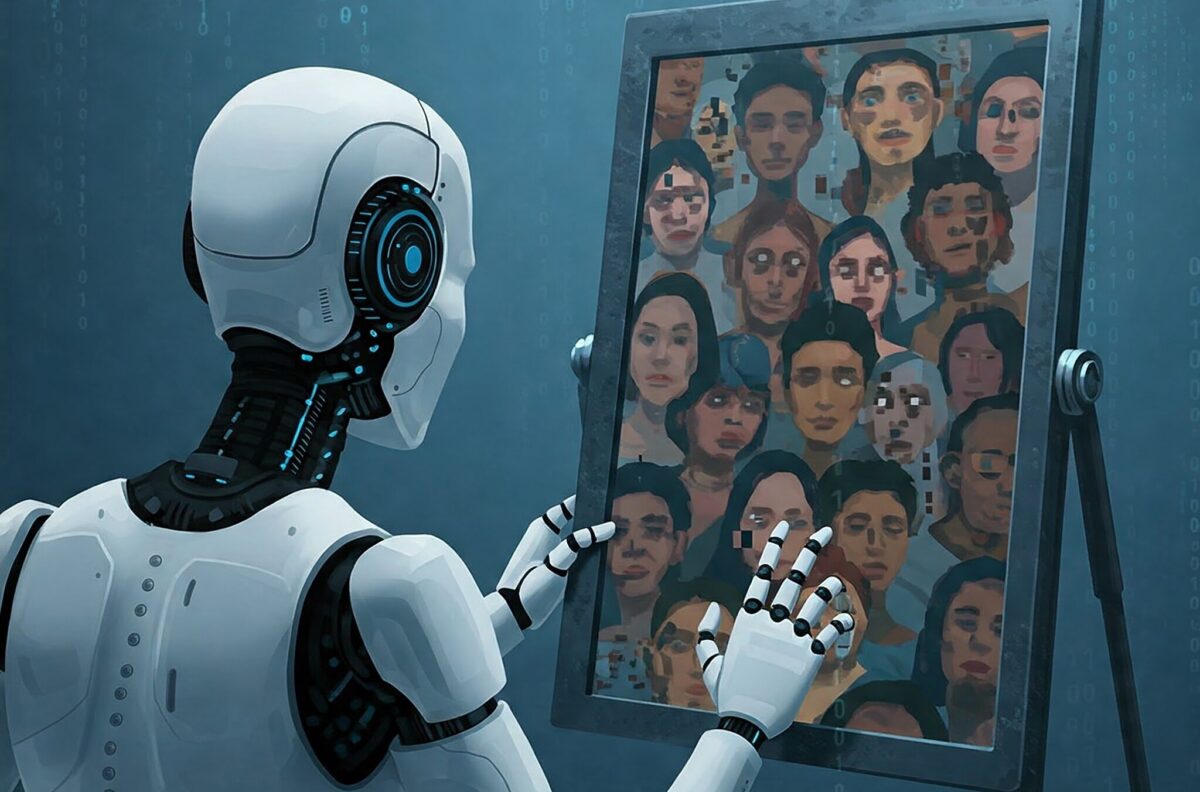The Betrayed Promise
Artificial intelligence (AI) has often been celebrated as a revolutionary force, is capable of delivering us from the prejudices and limitations of the human. The idea that algorithms, cold, mathematical equations, able to take decisions in a more rational and objective than us, it was tempting. But the reality, unfortunately, is proving to be more complex. The IA, far from being a panacea, it can become a mirror distorted by our own imperfections, reflecting and amplifying the bias that still permeate our society.
The Defect in the Original: The Data that Teach Prejudice
To understand this phenomenon, we must start from the way in which machines “learn”. The algorithms are not born with an innate capacity for judgment; acquire knowledge and skills by analyzing huge amounts of data. Here is where the problem originates. If the data that we provide to the IA reflect the inequalities, historical, cultural stereotypes or implicit biases, it is inevitable that the decisions of the IA will be affected. This mechanism is at the basis of the so-called bias in algorithmic.
Let's say, for example, an AI system for the selection of personnel, trained on data that show a predominance of men in leadership positions. The algorithm could learn to consider the “ideal” profile of the male, than involuntarily and the women candidates. Or, think of a facial recognition software, trained mostly on images of people with clear skin: may have difficulty accurately identify the faces of people with darker skin, with potentially serious consequences in the field of security and surveillance.
These are not hypothetical scenarios. Are concrete examples of how the AI, even without the intent of malicious, can perpetuate discrimination, simply because it “learns” from an imperfect world.
Beyond the Surface: The Many Faces of Bias in Algorithmic
The problem of AI bias is multi-faceted and it manifests itself in different ways. It is not only a question of the data is “dirty”. Also the design of the algorithms, the choices of development and the mode of use can introduce distortions.
Sometimes, the bias are obvious, such as when a system excludes a group of people (for example, by automatically rejecting job applications for people with a certain name). But often, the bias are more subtle and difficult to detect. Can be trapped in the metrics that we measure, in the parameters that we set, or even in the way in which we interpret the results produced by the AI.
The truth is that THE bias is a problem which is deeply human. It is a reflection of our own imperfections, projected on the machines that we have created.
An Ethical Imperative: to Build an IA Right
The fight against the AI bias is one of the most urgent challenges of our time. This is not only a technical issue, but an ethical imperative. We need to ensure that the artificial intelligence is a tool of progress and inclusion, not an amplifier of the inequalities.
This requires a collective effort, which involves developers, companies, legislators, researchers, and society as a whole. We need to develop algorithms that are transparent and explainable, so you can detect and correct the bias. We may collect and use the data in a responsible manner, ensuring that reflect the diversity of the population. And we need to be aware that technology is never neutral, but is always influenced by the values and choices of those who create it and using it.
The future of AI depends on our ability to tackle this problem with honesty, awareness and determination.
A New Covenant between Man and Machine
The artificial intelligence has the potential to radically improve our lives, to automate repetitive tasks, to help us solve complex problems and to open new frontiers of knowledge. But this potential will not happen automatically. We must work actively to build an AI fair, impartial, and respectful of the rights of all.
This means to forge a new covenant between man and machine, a covenant based on transparency, responsibility, and awareness. A covenant in which we recognize the limits of AI and its role as an instrument, and in which we put at the center of the fundamental human values: fairness, justice and dignity.
- To deepen the theme of fairness in automated systems, you should also read the article ‘Bias Algorithmic: IA and Discrimination Invisible
- For a broader reflection on ethics in the AI, you can see ‘Ethics of AI: A practical guide for professionals‘
